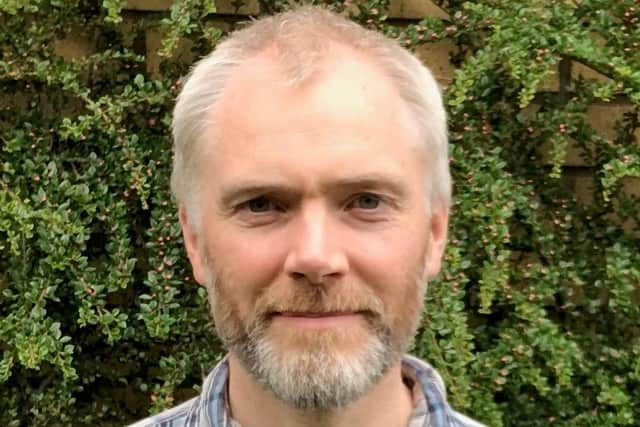We cannot risk losing the wondrous things that connect us to the natural world - Aedán Smith


At the same time, it has given us a stark example of how our lives can change drastically and quickly in a crisis, giving us a glimpse into what the future could hold if we fail to tackle the climate and nature emergency. We know that we need to take collective action to heal ourselves, our climate and our nature.
This spring, over 2000 Scottish voters contacted their candidates to ask them to champion nature if elected, and dozens of candidates from across the political spectrum responded. Voters have since come out in record numbers to elect a new Scottish Parliament, and its actions will be critical. The last 10 years were a lost decade for nature, where Scotland failed to meet half of the 2020 global nature targets.
Advertisement
Hide AdAdvertisement
Hide AdScotland is famous for its wildlife but a recent study by the Natural History Museum found that each of the four countries of the UK ranked near last out of 240 countries for how intact nature is, revealing huge historical nature losses across the UK. We know that natural spaces are being destroyed by urbanisation and intensive agriculture, species are threatened and going extinct and, just like the environment we depend on, humans are in increasing danger as the result of climate change.The next parliament must take steps to reverse this trend, meeting its ambitious climate targets and setting new, legally binding ones for nature which are backed up by an action plan and funding. Parliamentarians must support policies that enhance, rather than limit, nature in Scotland across our land, seas, towns and cities.
Luckily, we have a roadmap. The Scottish Wildlife Trust, WWF Scotland and RSPB Scotland have published a Nature Recovery Plan with 11 actions for nature. These actions range from restoring our land and seas, creating a just transition to a green economy for sectors from farming to fishing and forestry, licensing driven grouse moors and curbing harmful practices like muirburn. Investing in these actions would also create thousands of jobs across Scotland.
Parliamentarians must protect and restore nature across at least 30 per cent of Scotland’s land, expanding and connecting our best places for nature and ensuring that protections aren’t just on paper. We need an equivalent commitment for our oceans and seas to help our iconic marine species and ecosystems to thrive, including to fully protect 10 per cent of our seas from damaging activities.
We need targets to restore nature like we have for the climate. These targets should aim to increase wildlife populations and their spread across Scotland on land and at sea, end the threat of species going extinct in Scotland and increase the extent and quality of Scotland’s habitats. By including a commitment to introduce these targets in their first Programme for Government, the Scottish Government would demonstrate their understanding of the crisis we face and their commitment and ambition for Scotland to repair historic damage and become a global leader in nature restoration.
The emergency we face is unprecedented. Every day brings news of lost species, lost places. The actions of the new Scottish Parliament can stop this loss and restore nature for future generations. And this is important because nature is more to us than numbers of species or acres of green space. The birdsong at our window, the flash of sunlight through a tree, the crunch of dirt under our feet whether it be in the local park or at the top of a mountain, or the rare and thrilling glimpse of an iconic animal—these wonderous things connect us to the world, uplift us and help restore us to health. Without leadership, and without urgent action, we will lose them.
Aedán Smith, Head of Policy and Advocacy, RSPB Scotland
Comments
Want to join the conversation? Please or to comment on this article.